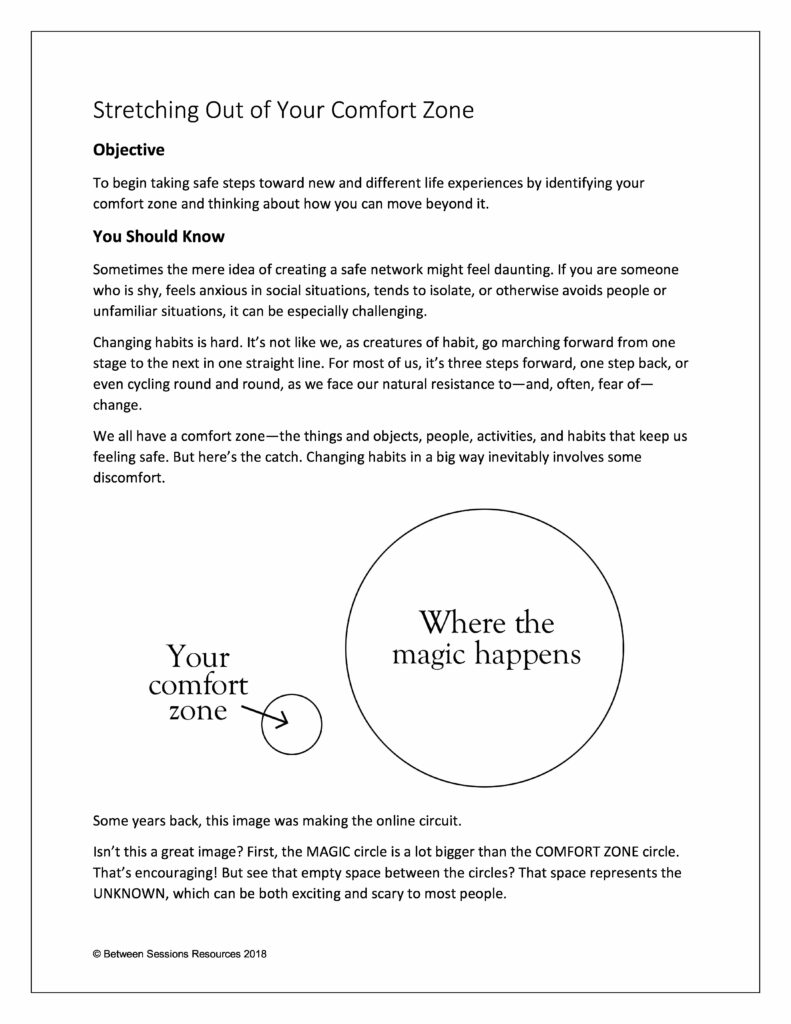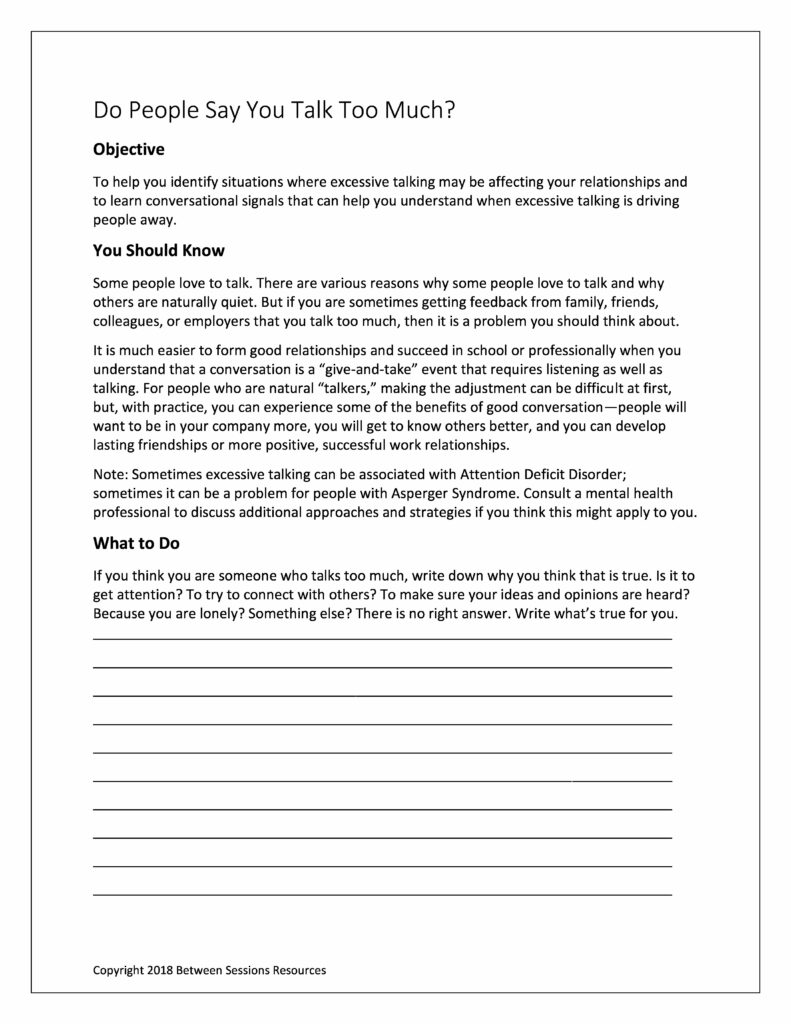Teens have a special way of communicating and learning about themselves, so we’ve made sure that all our therapeutic activities for teens are appealing and engaging to this age group.
To modify the tools, click the ‘Send to Client’ button by each tool to open the Psychology Forms Filler. You can then edit the tool as you see fit and either print it out or send it to a client to be filled out online. Click here for a tutorial on using the Psychology Forms Filler.
We’ve tried to address every teen issue we can think of, and more tools are added every week!
If you are looking for something you can’t find on this site, please let us know by clicking here and our team of writers, graphic artists, and therapists will custom-design it for you.
This simple Mood Diary can help clients keep track of their predominant mood each day, what influenced their mood, and what they did in response to their mood. (0219, emotions, log)
This worksheet is designed to help people with frequent nightmares learn the technique of positive imagery rehearsal. (sleep problems, nightmares, trauma, PTSD, 0219)
This worksheet is designed to help motivate people to change by moving out of their comfort zone. It can be useful with a variety of problems, from addictions to anxiety disorders. (motivation, 0219)
This worksheet is designed to help people identify situations where excessive talking may be affecting their relationships and to help them learn conversational signals that can aid in more appropriate give and take conversations. (ADHD, Asperger Syndrome, relationships, social skills, 0219)
This worksheet is designed to help people who are feeling depressed and even suicidal reach out to others and engage in social activities. (depression, prevention, social isolation, 0219)
This worksheet is designed to help people determine if hair-pulling is a serious problem. The worksheet also teaches a behavioral technique commonly used to treat this problem. (anxiety, trichotillomania, habits, 0219)
This worksheet can be used with people who have social anxiety to help them overcome symptoms that may keep them from dating. The worksheet uses the principles of exposure therapy to help people address this problem. (0119)
This worksheet is designed to teach people the DBT skill of “opposite action” where you practice the opposite behavior that you would normally use when dealing with powerful emotions. (emotional regulation, 0119)
This worksheet is designed to help you determine the attachment style (secure, anxious, or avoidant) you bring to your important relationships. Suggestions are given to help people who are anxious or avoidant in their relationships. (0119)
This worksheet is designed to help people understand why fire setting of any kind is a serious problem and what they can do solve this problem. It includes a Four-Step Technique to help people control their impulses. (pyromania, impulsivity, 0119)










